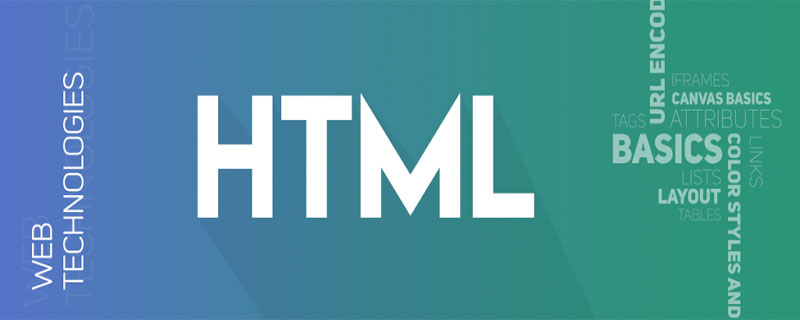HTML px, em, pt length units

The px unit name is pixel, a relative length unit. Pixel (px) is relative to the monitor screen resolution;
em unit name is a relative length unit . Relative to the font size of the text in the current object, it is used more abroad; (Recommended learning: html tutorial)
The pt unit name is point (Point), and the absolute length unit is generally used in older versions. Tables use length size units, but they are basically not used now.
htmlShort introduction to units:
Px Pixel; relative length unit.
Pt Point; absolute length unit
Em relative length unit, where em is spelled exactly the same as the "EM" of the html tag, and here em is used as a separate text unit .
1. In the past, IE could not adjust the font size that used px as the unit, but now almost IE supports it and it is recommended to use px as the unit;
2. Most foreign websites can The reason for the adjustment is that it uses em as the font unit;
3. Firefox can adjust px and em, but more than 96% of Chinese netizens use IE browser (or kernel).
px pixels (Pixel). Relative length unit. Pixel px is relative to the monitor screen resolution, and QQ screenshots also use PX as the length and width unit.
em is a relative unit of length. The font size relative to the text within the current object. If the current font size for inline text has not been manually set, it will be relative to the browser's default font size.
Set different lengths for text em px pt units to see the effect:
CSS code:
.divcss-px{ font-size:12px}
.divcss-pt{ font-size:12pt}
.divcss-em{ font-size:2em}HTML code:
<div class="divcss-px">我是divcss1</div> <div class="divcss-pt">我是divcss2</div> <div class="divcss-em">我是divcss3</div>
The above is the detailed content of HTML px, em, pt length units. For more information, please follow other related articles on the PHP Chinese website!

Hot AI Tools

Undresser.AI Undress
AI-powered app for creating realistic nude photos

AI Clothes Remover
Online AI tool for removing clothes from photos.

Undress AI Tool
Undress images for free

Clothoff.io
AI clothes remover

Video Face Swap
Swap faces in any video effortlessly with our completely free AI face swap tool!

Hot Article

Hot Tools

Notepad++7.3.1
Easy-to-use and free code editor

SublimeText3 Chinese version
Chinese version, very easy to use

Zend Studio 13.0.1
Powerful PHP integrated development environment

Dreamweaver CS6
Visual web development tools

SublimeText3 Mac version
God-level code editing software (SublimeText3)

Hot Topics
 1386
1386
 52
52
 Table Border in HTML
Sep 04, 2024 pm 04:49 PM
Table Border in HTML
Sep 04, 2024 pm 04:49 PM
Guide to Table Border in HTML. Here we discuss multiple ways for defining table-border with examples of the Table Border in HTML.
 HTML margin-left
Sep 04, 2024 pm 04:48 PM
HTML margin-left
Sep 04, 2024 pm 04:48 PM
Guide to HTML margin-left. Here we discuss a brief overview on HTML margin-left and its Examples along with its Code Implementation.
 Nested Table in HTML
Sep 04, 2024 pm 04:49 PM
Nested Table in HTML
Sep 04, 2024 pm 04:49 PM
This is a guide to Nested Table in HTML. Here we discuss how to create a table within the table along with the respective examples.
 HTML Table Layout
Sep 04, 2024 pm 04:54 PM
HTML Table Layout
Sep 04, 2024 pm 04:54 PM
Guide to HTML Table Layout. Here we discuss the Values of HTML Table Layout along with the examples and outputs n detail.
 HTML Input Placeholder
Sep 04, 2024 pm 04:54 PM
HTML Input Placeholder
Sep 04, 2024 pm 04:54 PM
Guide to HTML Input Placeholder. Here we discuss the Examples of HTML Input Placeholder along with the codes and outputs.
 HTML Ordered List
Sep 04, 2024 pm 04:43 PM
HTML Ordered List
Sep 04, 2024 pm 04:43 PM
Guide to the HTML Ordered List. Here we also discuss introduction of HTML Ordered list and types along with their example respectively
 Moving Text in HTML
Sep 04, 2024 pm 04:45 PM
Moving Text in HTML
Sep 04, 2024 pm 04:45 PM
Guide to Moving Text in HTML. Here we discuss an introduction, how marquee tag work with syntax and examples to implement.
 HTML onclick Button
Sep 04, 2024 pm 04:49 PM
HTML onclick Button
Sep 04, 2024 pm 04:49 PM
Guide to HTML onclick Button. Here we discuss their introduction, working, examples and onclick Event in various events respectively.




